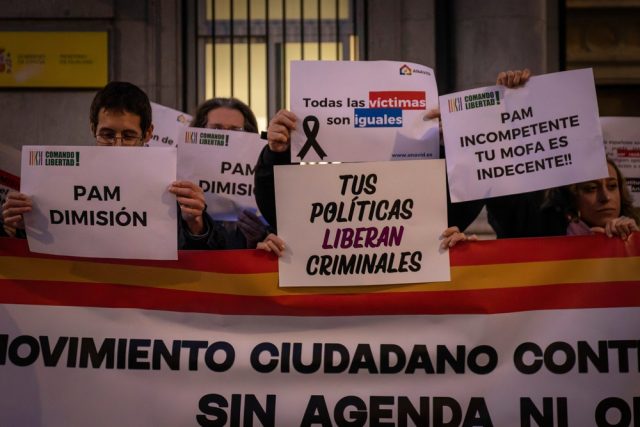
The unity of the coalition government between PSOE and Unidas Podemos is strongly compromised. A few months before the regional and municipal elections that will precede the general elections, the understanding between the socialists of Pedro Sánchez and the ultra-leftists of Irene Montero and Ione Belarra is very weakened. The scandal provoked by the “Solo sí es sí Law”, also known as “Ley Montero” (name of one of the leaders of the party and Minister of Equality) has led to the reduction of sentences of at least 448 sex offenders. Far from recognizing the formal errors of the law, despite the warnings given by the media and jurists, both parties have tried to ignore the facts and try to win the media battle.
As the days progressed after the entry into force of the law, numerous reductions of sentences for sex offenders followed one after the other. Faced with the denunciation of numerous sectors of politics and civil society, the members of Unidas Podemos reduced this terrible situation to a kind of misogynist propaganda of those who sought to prevent progress in women’s rights. Later, when it began to be really difficult to refer to this law without alluding to the reduction of sentences for sex offenders, members of the Socialist Party government began to backtrack. While there were more and more cases of offenders benefiting from a sentence reduction due to the entry into force of the “Montero Law”, there was less and less time left for the elections that would mark the future of both parties, at a time when their popularity is very low.
Unidas Podemos, the last stand of discursive politics
Personalities of the Valencian regionalists, politicians from other parties of the left or even the Minister of Industry, Trade and Tourism, Reyes Maroto (PSOE), referred to technical improvements that should be applied to reverse this situation of reduced sentences. The socialist president of the autonomous community of Castilla-La Mancha, Emiliano García-Page, went so far as to ask himself “how many sentences do there have to be for someone from the Ministry of Equality to start thinking that they have made a mistake”. The only group that remained clinging to a victimizing and, in a denialist sense, discourse was Unidas Podemos. Its former leader (whom many qualify as the “shadow leader” of the group), Pablo Iglesias, assured in one of the most listened radio stations in Spain, that what there has been “media pressure from the media right and the judicial right”. The leader of the opposition, Núñez Feijoo, offered the seats of the Popular Party (center-right) to Pedro Sánchez to correct this law and stop the increase in the number of rapists whose sentences have been reduced. Faced with this, Pablo Iglesias threatened: “If Pedro Sánchez agrees this with the PP, he will pay for it”.
The external pressure from the rest of the left-wing groups and the evident lack of harmony between the two government partners led, at last, to the first statement from within Unidas Podemos recognizing these cases of reduced sentences due to the application of the “Ley Montero”. Ione Belarra, Minister of Social Rights and one of the visible faces of Unidas Podemos, assured that Spaniards are before a “bad application” of the law, which has led “judges who apply a macho and patriarchal look” to reduce sentences. Belarra recognizes the error, which was already very evident, but does not recognize the fault.
And, in this way, the leftist coalition government adds one more scandal in a legislature that is approaching its end. This time, compromising its feminist discourse that claims to protect women and that weakens the voting intention of its own niche of voters. Closer and closer to an electoral defeat, the PSOE begins to fear the pending account it has with the Spaniards, having betrayed its word on numerous occasions and having entrusted itself to those who, beyond the discourse, have no project for the country.



 Subscribe
Subscribe